
One of our main priorities is to ensure universal access to, and informed use of effective contraception. Millions of people lack the knowledge and information to determine when or whether they have children, and they are unable to protect themselves against sexually transmitted infections (STIs).
Articles about Contraception
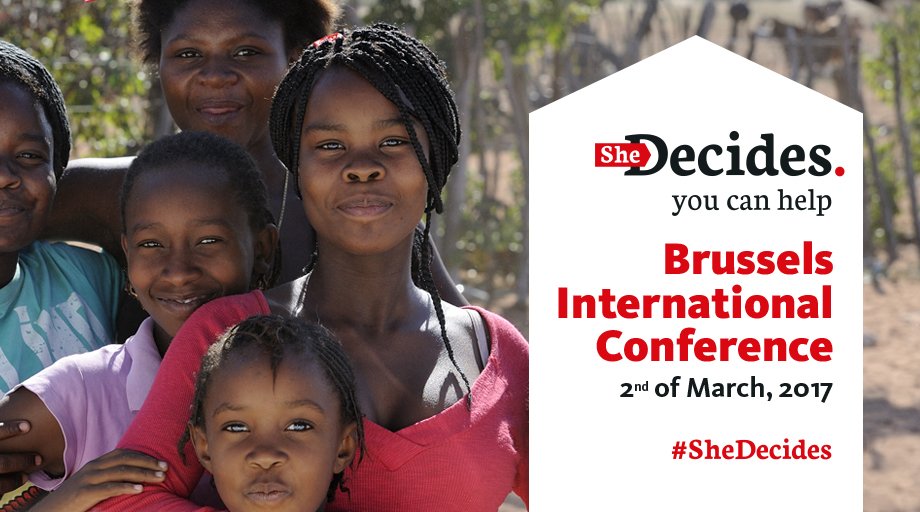
IPPF at the She Decides Conference
The International Planned Parenthood Federation (IPPF) is grateful to the international community for its ongoing support for women and girls through the She Decides initiative. 2 March 2017 was a powerful moment for our movement. The recent return of the Global Gag Rule, has left the community concerned and frustrated. But many governments, as well as other entities, have stepped up to the challenge. The She Decides initiative and conference offered the platform and the momentum to help shape a new global partnership for sexual and reproductive health and rights (SRHR). #Ploumen: ‘People - especially women & girls - all over the world should feel empowered and supported in their right to decide’ #SheDecides pic.twitter.com/HBrUOmz8KF — Netherlands ?? MFA (@DutchMFA) March 2, 2017 In total €181 Million was pledged at the conference. Many of our Member Associations spoke at the conference to give powerful testimonies of how they are working on women’s sexual and reproductive health and rights. They highlighted the need for financial and political support to deliver these lifesaving programmes. IPPF Director General gave a passionate speech on how the Global Gag Rule impacts the Federations’ work. He talked about how this was not about money but human rights. "When it comes to women's Rights, there's no North or South, it's a GLOBAL movement until #SheDecides" - T. Melesse @ippf pic.twitter.com/h7QMNIy3Lq — IPPF Global (@ippf) March 2, 2017 IPPF was delighted to hear that the Canadian Government announced a $4 million as part of their ongoing support to women’s rights. This was one among the many pledges of support IPPF received. Women rights are human rights. Canada just pledged up to $20M to @UNFPA @IpasOrg @ippf @MarieStopes @PSIimpact #SheDecides pic.twitter.com/m7KLKK1eGE — Marie-Claude Bibeau (@mclaudebibeau) March 2, 2017 Anonymous donation of $50M brings #Shedecide funding to €181M. Thank you @Ploumen4Women for starting it and all donors for making it HUGE! — IPPF Global (@ippf) March 2, 2017 There was strong commitment from the European Commission. The European Commissioner for International Cooperation and Development, stated that the Commission will continue to support sexual and reproductive health and rights, comprehensive family planning, education, information and preventive health programme. He also proudly announced that we will continue to support the work of our partners - like UNFPA, UNICEF, IPPF and many NGOs - to improve the lives of women and girls. The Conference was just the beginning. Mobilising the international support and commitment of 50 governments to safeguard women’s sexual and reproductive health and rights. We will continue to work with Governments, foundations and other actors to ensure that this journey becomes a reality. Because in the end it is she who must decide. The result after just 5 weeks, minister #Ploumen on #SheDecides at the end of the Brussels conference pic.twitter.com/wwit5ATG5z — Netherlands ?? MFA (@DutchMFA) March 2, 2017 Subscribe to our updates! SUPPORT OUR WORK WITH A DONATION
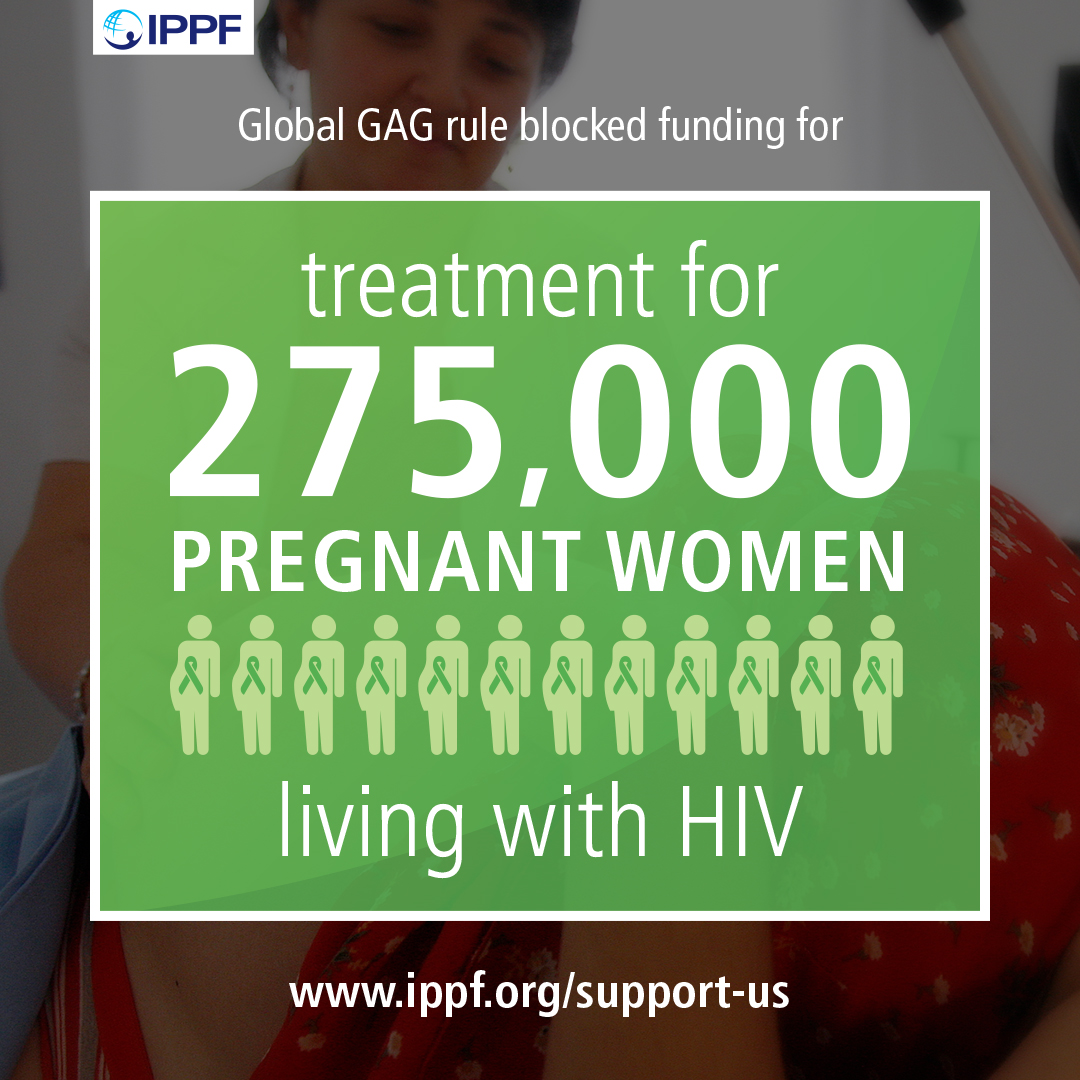
Watch: What's the impact of the Global Gag Rule?
We calculated the human cost of the U.S. Global Gag Rule. The effects can be devastating for millions of poor and marginalised women. WANT TO GET INVOLVED? SUBSCRIBE NOW TO GET UPDATES FROM IPPF SUPPORT OUR WORK WITH A DONATION
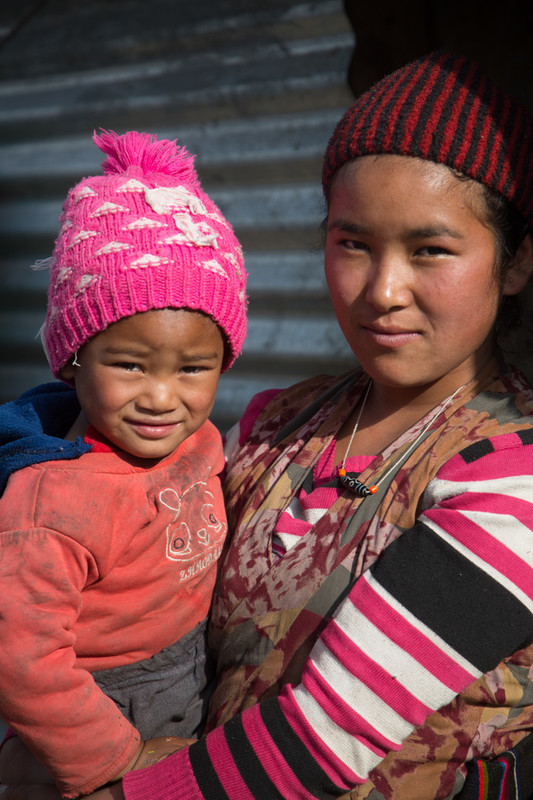
Forced into marriage at 16
High up in the mountains of Rasuwa in northern Nepal, close to the Tibetan border, is the village of Gatlang. This tight-knit village of traditional stone houses and Buddhist stupas is home to the Tamang people: a Buddhist indigenous group for whom family life is strictly patriarchal. Marriage traditions here can be oppressive: when a man chooses a wife, the girls – many are as young as 14 – have little choice but to marry. Most then go on to have large families, meaning food, money and education are spread sparsely. Jomini Tamang was just 16 years old when her parents forced her to marry. “I don’t want to get married,” she told them, but the wedding went ahead anyway. Jomini lives in Gatlang, a remote village of traditional stone and carved wooden houses, high up in the mountains of northern Nepal, close to the Tibetan border. The people here are Tamang, a Buddhist ethnic group, and family life is strictly patriarchal. Many Tamang marry young – from around 14 years old – and girls tend to be pushed into marriage by both their parents and the young men who choose them. “It’s not easy being married, it’s difficult,” says Jomini, whose husband is eight years older than her. “When I got married, I didn’t know anything about what happens after marriage, about the physical side.” After a year of marriage, Jomini had her first child, a boy called Gauran, who is now two. Women like Jomini are expected to combine childcare with household chores and long shifts farming vegetables in the village fields. “After the birth, I had many difficulties. Bringing up a child in this remote village was frightening and challenging, and Gauran was ill a lot". Giving birth at a young age can lead to severe physical complications or death, and maternal mortality is one of the leading causes of death for women in Nepal. Only 60% of women receive skilled antenatal support. Luckily for Jomini, shortly after Gauran’s birth, the Family Planning Association of Nepal (FPAN), Nepal’s leading family planning NGO, stepped in to help. Jomini met Pasang Tamang, a local woman who works as a reproductive health female volunteer for FPAN. Through Pasang, Jomini learned about different contraceptive methods and, with careful advice and support, was able to think through which might be best for her. She opted for the contraceptive injection, and says she is much happier now: contraception has given her more freedom, and the space to think clearly about when to have another child. Jomini’s experiences have convinced her to do everything possible to enable her children to live happier lives, less constrained by patriarchy and marriage. If she has a daughter, “I will tell her not to get married at an early age like her mum, and that if she does, she will suffer,” she says. “I will advise her to study more so she can work.” “And I will advise my son the same! Study more and wait til you are more mature to get married.” Stories Read more stories from Nepal
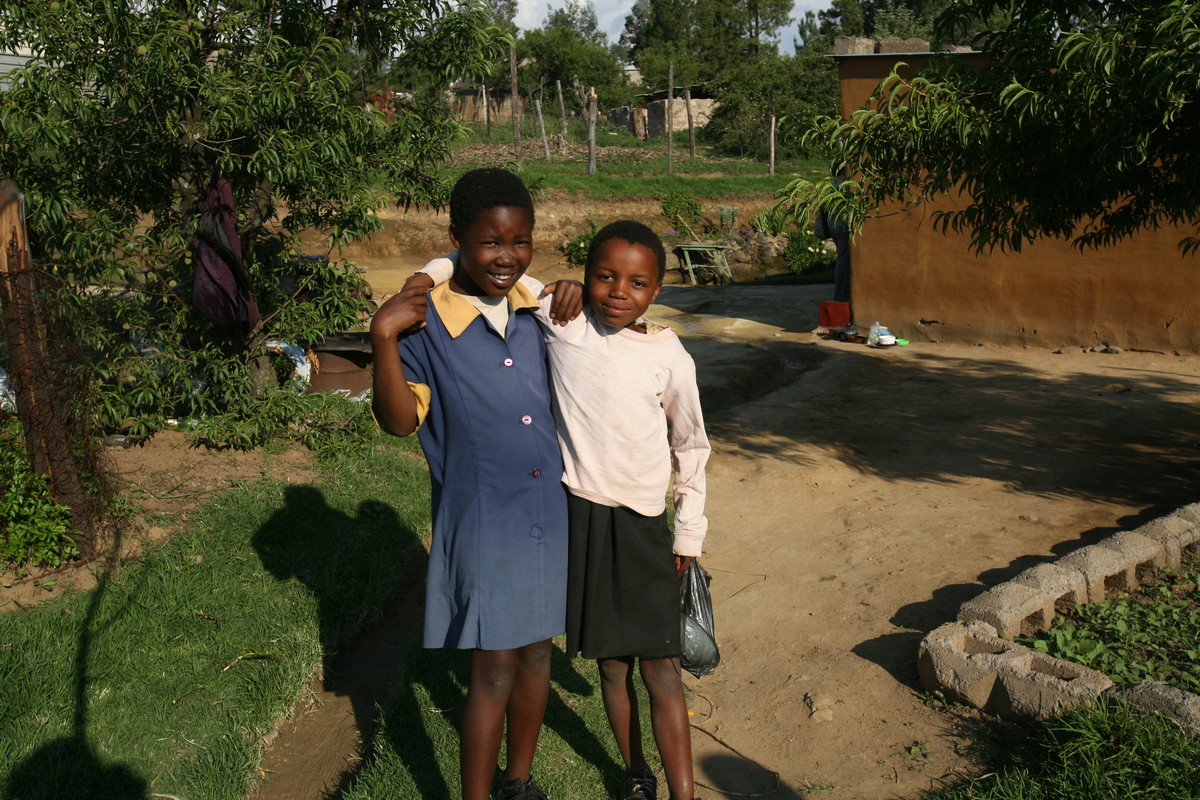
She Decides Conference: Making a stand for women and girls right to decide
Access to education, the right to make choices about your own body – these are things many of us take for granted. But the reality for many women and young girls in developing countries is very different. Denied rights to some very basic choices – such as how many children to have and when, whether to stay in school, and how to participate in their country’s economy. For some, this is about culture, custom, economics or just denial of basic human rights. For others it is as simple, yet life changing, as not having access to modern contraceptive methods. The She Decides Conference in Belgium today sees ministers, young leaders, civil society groups and policymakers – a real mixture of organizations gathered together with one key objective – trying to change the way action is taken on women and girls human rights. This Conference is a seminal moment – a vital opportunity for Governments and NGOs to work collaboratively to address the challenges we face. "If we want the world to advance, we must ensure women's rights to decide. I want my daughter's to decide." Chad Min. Of Health #SheDecides pic.twitter.com/nN3zJPav7D — IPPF Global (@ippf) March 2, 2017 The She Decides initiative is not about abortion. It’s a fundraising initiative for human rights. Access to sexual and reproductive health and rights, and in particular family planning, is the foundation for gender equality, women's empowerment, and economic development for both women and men, wherever and whoever they are. This moment will kick-start the process of securing maximum political and financial support to ensure full access worldwide to sexual and reproductive health and rights, including family planning, so that the most vulnerable women and girls can exercise the right to decide about their own bodies and destiny. The need has never been greater. Beatrice Akoth had never wanted or planned to have nine children, but she had no choice. Although the idea is incomprehensible for many of us, Beatrice, like millions of other women and girls, had no access to contraception when she desperately needed it. “When I was a young girl, I never thought I would have nine children. After each child, I got pregnant again, nine months later,” she said. This left her struggling to provide for her family, who all share a two-room mud shack on swampy ground on the outskirts of Kisumu, Kenya. No one had ever talked to her in any depth about family planning, and by the time the ninth child was born, 41-year-old Beatrice was unable to cope. “The children were my burden. I did not know who to turn to. But one day, out of the blue, I overheard a group of women animatedly chatting about family planning and where to access it,” she said. There’s no doubt that if she had been able to get care sooner, her life would have been dramatically different. And Beatrice is far from alone. It doesn’t cost much to provide contraception or to safeguard rights, but we need political will and investment. This is why She Decides in Brussels comes in. We are at a crucial moment. As governments and those on the ground delivering services to protect women’s rights and tackle inequality. We know that sexual and reproductive health and rights are key to individual wellbeing. "When it comes to women's Rights, there's no North or South, it's a GLOBAL movement until #SheDecides" - T. Melesse @ippf pic.twitter.com/h7QMNIy3Lq — IPPF Global (@ippf) March 2, 2017 And in such company, we could convince ourselves that we have won this fight that our unanswerable case has triumphed. Sexual and reproductive health and rights services cover every aspects of people’s lives. We want to make sure there is continued support to avoid unintended health consequences, especially for women living at the margins of society hardest – the poorest, disabled, the most remote and those under the age of twenty-five. No one should be denied the lifesaving healthcare they need. As a social movement working on these issues, we will survive this time. And it is heartening to see that with each setback in the fight for the health of women and girls, the response becomes stronger. That is why we are in Brussels today – because our determination to ensure that she really does decide has never been stronger. "Providing girls with sexual and reproductive health&services I'm not doing them a favour: it's their right!" A. Dicko @ippf at #SheDecides pic.twitter.com/rUGU6pyk5l — IPPF Global (@ippf) March 2, 2017 WANT TO GET INVOLVED? SUBSCRIBE NOW TO GET UPDATES FROM IPPF SUPPORT OUR WORK WITH A DONATION
"If we could have accessed to contraception, my friend would be still alive"
Adama lost her best friend due to an unsafe abortion. This tragedy pushed her to work for and with young people to ensure them access to sexual and reproductive health information and services. WANT TO GET INVOLVED? SUBSCRIBE NOW TO GET UPDATES FROM IPPF SUPPORT OUR WORK WITH A DONATION
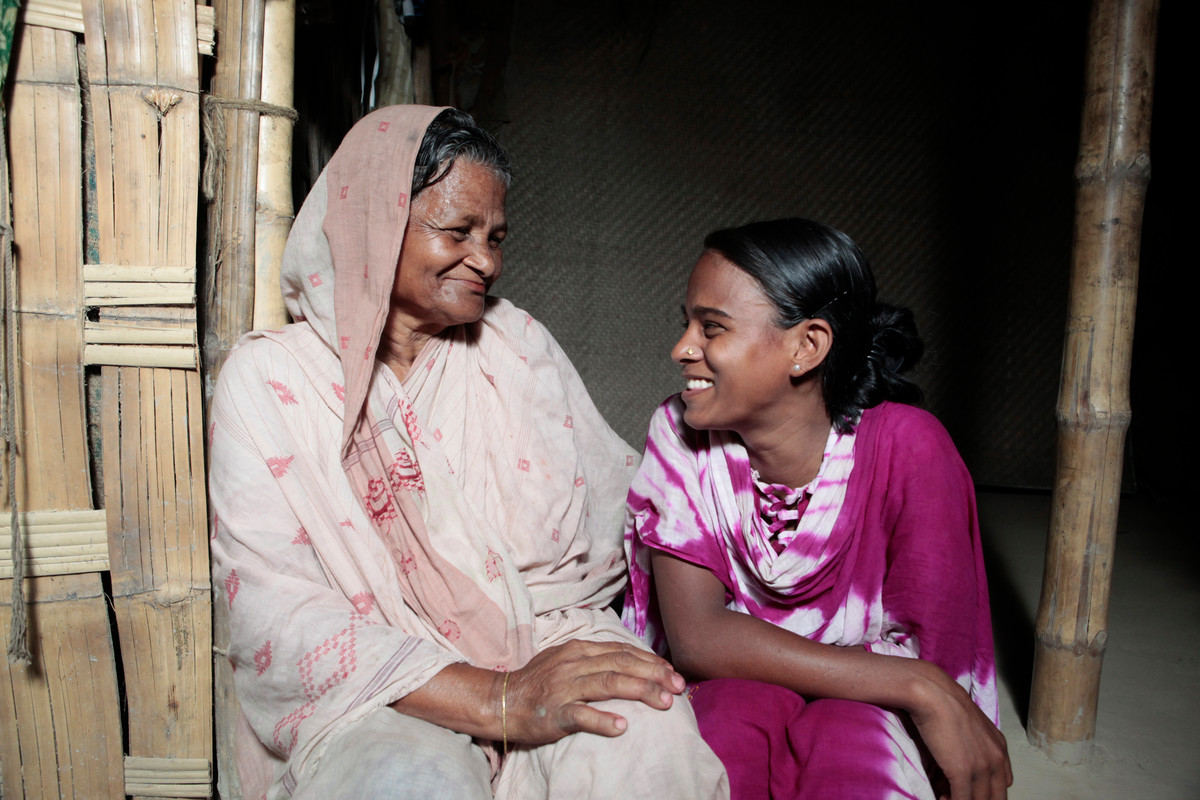
IPPF supports the She Decides Initiative
The International Planned Parenthood Federation (IPPF) is grateful to the international community for its ongoing support for women and girls through the She Decides initiative. The announcement of a funding summit to support the campaign, to be held in Brussels on 2 March, emphasizes an international commitment to safeguarding women’s sexual and reproductive rights. Tewodros Melesse, IPPF Director General said: “It is reassuring to know that when one government takes a step backwards on the issue of women’s rights, so many more are willing to step forward. “The ‘She Decides’ initiative is a crucial lifeline for the millions of people who will be unjustly punished by this policy and emphasizes the international community’s commitment to creating a world built on unity, equality and opportunity. “The summit in March will be a valuable opportunity for progressive governments to come together and begin the challenging task of mitigating the damage of this regressive and oppressive policy.” IPPF’s Member Associations will be speaking at the conference to give their account of the impact of the Global Gag Rule.
Access to contraception at risk for women in remote regions
Access to family planning is limited in Uganda and the contraceptive prevalence rate stands at only 30%. In remote communities, the situation is far starker and most women rely on mobile clinics or Village Health Teams (VHT) to manage their sexual and reproductive health. Now, as a result of the reintroduction of the Global Gag Rule, many of these services are now facing funding cuts and thousands of women, like Grace, have been put at risk. Grace is 28 and lives wither husband and 4 children in Kalela, a small village in the Kabarole district of Uganda. Grace and her husband are farmers, growing just enough food to feed themselves and their children. Already a mother of 4, Grace is struggling to provide for her family and is fearful of becoming pregnant. “I cannot take good care of a big family, we are struggling with the four children we have” she explains. Grace is now receiving a quarterly contraceptive called Sayana Press, through one of Reproductive Health Uganda’s mobile clinics. This is allowing her to manage her reproductive health and helping her to plan and support her family “Previously I was using pills and depo, but I stopped because of the side effects. Then I would fall pregnant. With Sayana Press, I don’t see myself having another child, I cannot take good care of a large family” Akiiki Jemimah Mutooro is a volunteer who works as a village health team member, in Kijura parish, Hakibaale. As a village health team member, Akiiki provides counselling and family planning services to her local community. “I give Sayana Press injections to between 30 and 50 women every month. Some I find in their homes and others will come to my home”. According to Akiiki, without funding from RHU, women in her region will lose access to contraception “Most of the contraceptives we provide are provided by RHU” she says “Women will walk for many miles to a health clinic and find that they cannot provide the services… So if we are unable to continue this service, many women will lose out” By removing access to family planning services, it is inevitable that unplanned pregnancies will increase, leaving women like Grace with few options available to them. WANT TO GET INVOLVED? SUBSCRIBE NOW TO GET UPDATES FROM IPPF SUPPORT OUR WORK WITH A DONATION JOIN OUR THUNDERCLAP TO SPREAD THE MESSAGE
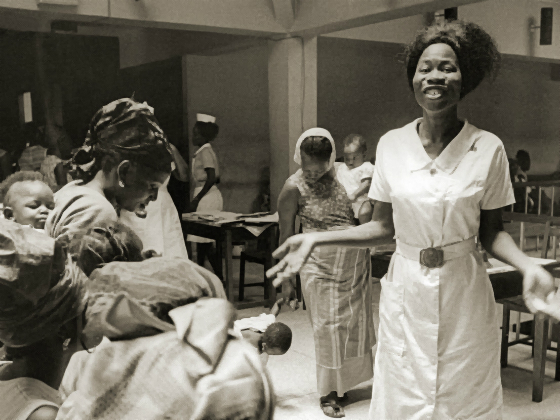
Celebrating over 60 years of service delivery
For over 60 years, IPPF has been at the vanguard of the family planning movement, championing and fighting for rights‑based, voluntary family planning worldwide.
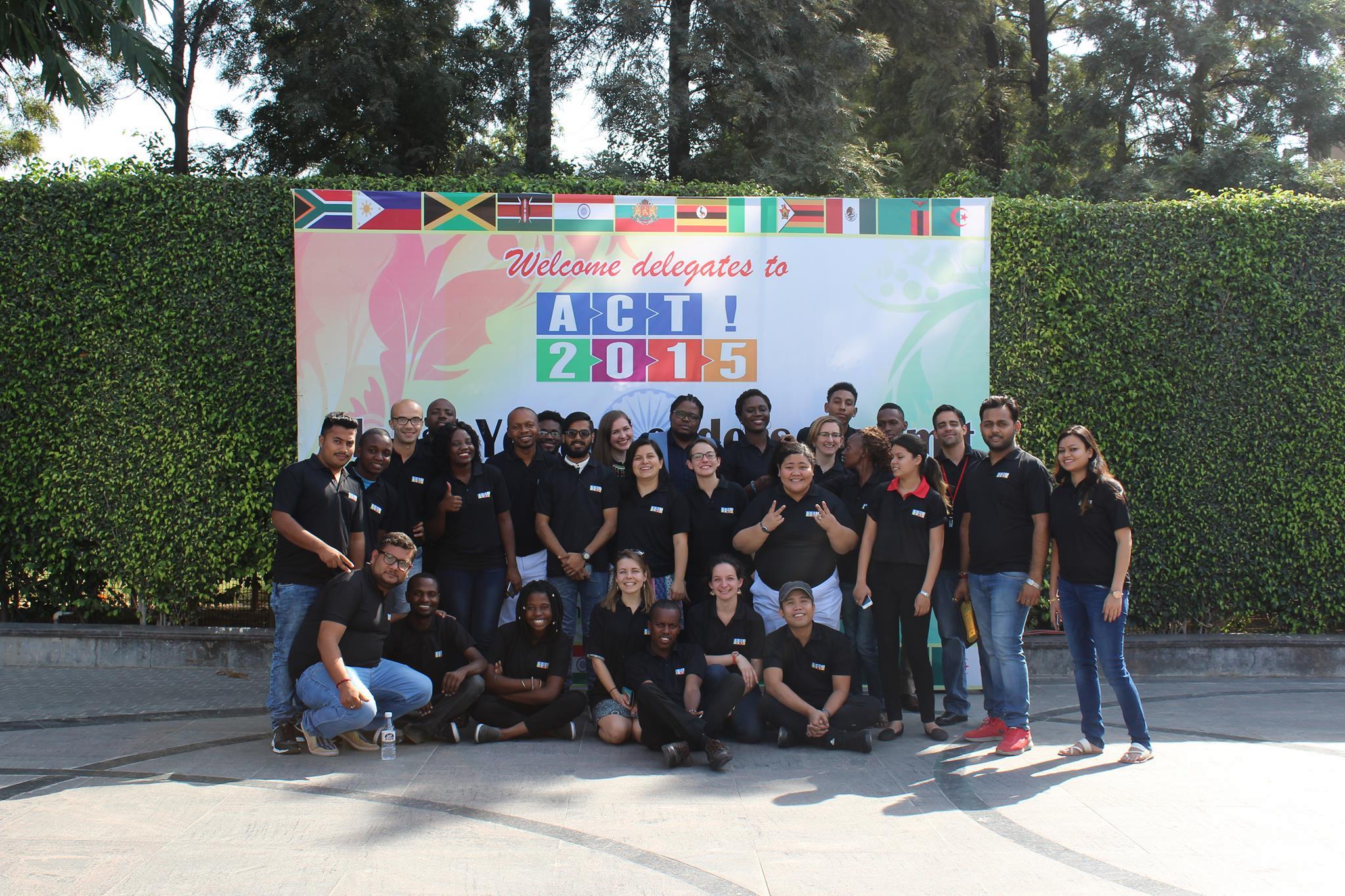
ACT!2030
IPPF collaborates with UNAIDS and The PACT to implement ACT!2030 (formerly ACT!2015), a youth-led social action initiative which engages young people in 12 countries with advocacy and accountability around the Sustainable Development Goals (SDGs) and other SRHR agreements/frameworks. ACT!2030 was initiated in 2013 as a way to increase youth participation in the negotiations leading up to the adoption of the post-2015 development agenda, and for two years focused on establishing alliances of youth-led and youth-serving organisations in 12 countries across the world. The project is currently in Phase 4, which runs until the end of 2017, and aims to establish youth-led, data-driven accountability mechanisms to ensure youth engagement with the implementation of the SDGs and build an evidence base for advocacy. Ultimately, Phase 4 of ACT!2030 seeks to identify, assess and address key policy barriers to young people’s sexual and reproductive data by using existing data, supplemented by youth-collected data, to advocate and lobby for policy change. This phase involves four main activities: indicator advocacy (persuading decision makers to adopt youth-friendly SRHR and HIV indicators, including on things like comprehensive sexuality education (CSE) and access to youth-friendly services, into national/global reporting mechanisms); evidence gathering (creating national databases on quality of and access to youth-friendly services and CSE); communications (transforming this data and evidence into communications pieces that can be used to advocacy and lobby at national and international level); and global exchange (facilitating global visibility to share advocacy and engagement learnings and increase youth-led accountability in global and regional processes). ACT!2030 is implemented by national alliances of youth organisations in 12 countries: Algeria, Bulgaria, India, Jamaica, Kenya, Mexico, Nigeria, Philippines, South Africa, Uganda, Zambia and Zimbabwe.
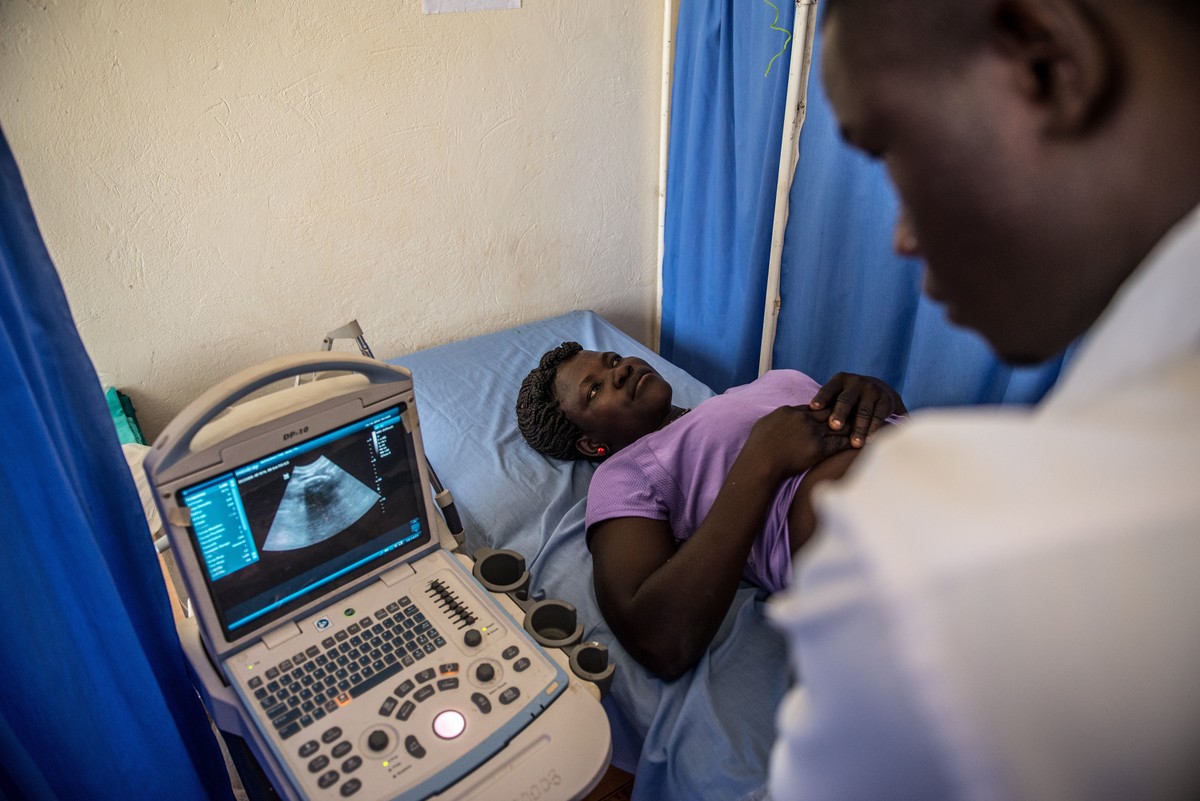
The human cost of the Global Gag Rule
IPPF has now compiled data outlining how the reinstatement of the Global Gag Rule will affect people’s health around the world. Our global network of local partners delivers more than 300 services every minute of every day. During President Trump’s term, we will forego approximately USD$100m funding from the US government, which would have supported our family planning and HIV programmes for women with the greatest need for these health care services. The regions most affected are sub-Saharan Africa, South Asia and Latin America and the Caribbean. In practical terms, this level of funding could have prevented: 20,000 maternal deaths 4.8 million unintended pregnancies 1.7 million unsafe abortions It could have also provided: treatment to 275,000 pregnant women living with HIV to protect their health and help prevent transmission of HIV to their infants 70 million condoms to prevent unintended pregnancies, HIV and other STIs 725,000 HIV tests to enable people to know their HIV status The foregone funding could have also treated 525,000 sexually transmitted infections. As an organisation that seeks to protect and improve the lives of women, men and children around the world, IPPF and its partners in 171 countries will not sign a policy that denies human rights and puts the lives of women at risk. We are working with governments and others to bridge this new funding gap and help keep our clinics open. Sign up now to get updates on how you can be involved and make a difference. JOIN OUR THUNDERCLAP TO SPREAD THE MESSAGE SUPPORT OUR WORK WITH A DONATION
Pagination
- Previous page
- Page 14
- Next page






